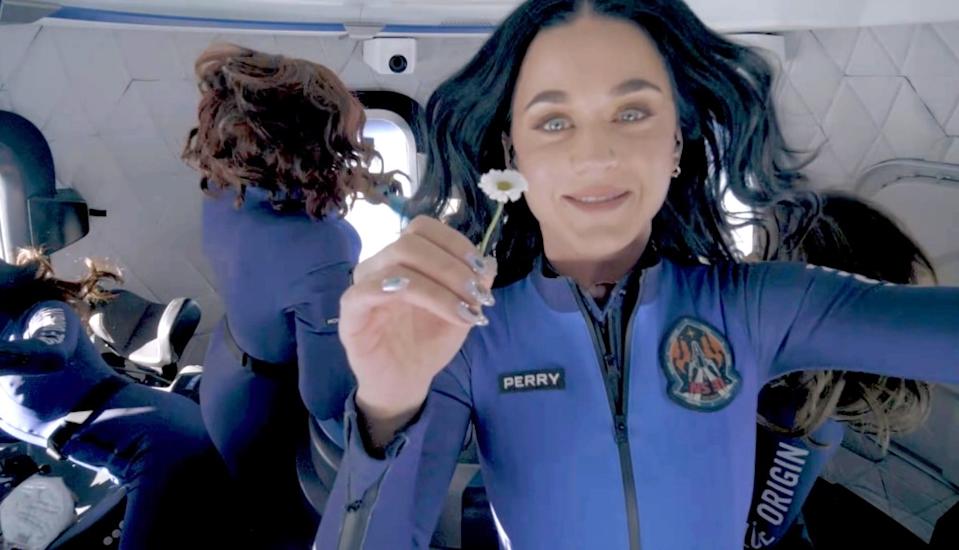Jessica Alba Defends Close Friends Lauren Sánchez and Katy Perry After Blue Origin Backlash

Jessica Alba has come forward to defend her close friends, Lauren Sánchez and Katy Perry, following a wave of backlash surrounding their participation in Blue Origin’s recent space mission. The mission, which included an all-female crew comprising high-profile personalities like Gayle King, has faced severe criticism from the public for its perceived triviality and environmental implications. With much of the backlash focusing on the idea that space missions like this are unnecessary, Alba’s support underscores a broader conversation about women’s representation in space exploration.
The Rising Criticism of the Blue Origin Flight

The 11-minute space flight conducted by Blue Origin sparked outrage for what many critics deem a disregard for pressing societal issues. Celebrities, commentators, and even brands have echoed sentiments against the mission, arguing that funds and resources could be better spent addressing urgent problems on Earth. Notably, critics have highlighted the environmental impact of launching additional rockets, questioning the motivations behind the mission.
Amidst this criticism, Jessica Alba used her social media platform to urge the public to redirect their frustrations towards significant political issues. Specifically, she pointed to former President Donald Trump’s actions, suggesting that energy expended on criticizing friends in the entertainment sphere could be more productively aimed at confronting governmental issues. By framing the criticism as misdirected, Alba aims to remind her followers that the achievements of women like Sánchez and Perry should serve as motivation rather than fodder for criticism.
Voices of Support and Dissent

The backlash did not only come from the public; it also drew responses from other celebrities. Notables such as Amy Schumer and Olivia Wilde have expressed their disapproval regarding the mission, seemingly aligning with public sentiment. In response to the discontent, Gayle King, a co-pilot on the flight, defended the mission’s significance. She remarked that the all-female crew was being held to a different standard compared to their male counterparts who have previously flown into space, suggesting that the term “ride” unfairly diminishes the seriousness of their journey.
King highlighted that the flight mirrored the trajectory of Alan Shepard’s historic mission in 1961, marking an important moment in history as it symbolized progress in the fight for gender equality in the scientific and exploratory realms. By emphasizing the inspiration that their mission might instill in future generations—particularly young women—King has been vocal about the mission being far from trivial. She pointed out that advancements in science and exploration require recognition, especially when they help pave the way for future female astronauts.
Gender Representation in Space Exploration

This landmark mission is particularly noteworthy as it marks the first all-female launch team since Valentina Tereshkova’s solo flight in 1963. The significance of such events cannot be overstated; they contribute to ongoing dialogues about women’s roles in traditionally male-dominated fields, promoting visibility and representation in science, technology, engineering, and math (STEM) sectors.
Alba’s defense not only sheds light on this specific event but also calls attention to the broader implications of women’s participation in the space sector. As more women break barriers and navigate through challenges, their accomplishments serve to inspire a new generation of young girls who may wish to follow in their footsteps. The overall narrative of this mission reflects growing acceptance and appreciation for women’s achievements in space exploration, highlighting the essential need for visibility in these critical roles.

As we continue to celebrate these groundbreaking movements, it becomes clear that support for women in all fields, including space exploration, is essential for progress. Alba’s comments, along with King’s and others, remind us of the importance of adapting our perspectives and recognizing the value these missions bring not just to science, but also to gender equality and representation.
In conclusion, while criticisms may arise regarding such missions, it is imperative to focus on the larger picture: celebrating the achievements of women who are rewriting history in space travel. Let’s continue to show our support for these pioneering figures and encourage the next generation of explorers, scientists, and leaders. Join the conversation and advocate for inclusivity in fields often overlooked. Your voice matters!





